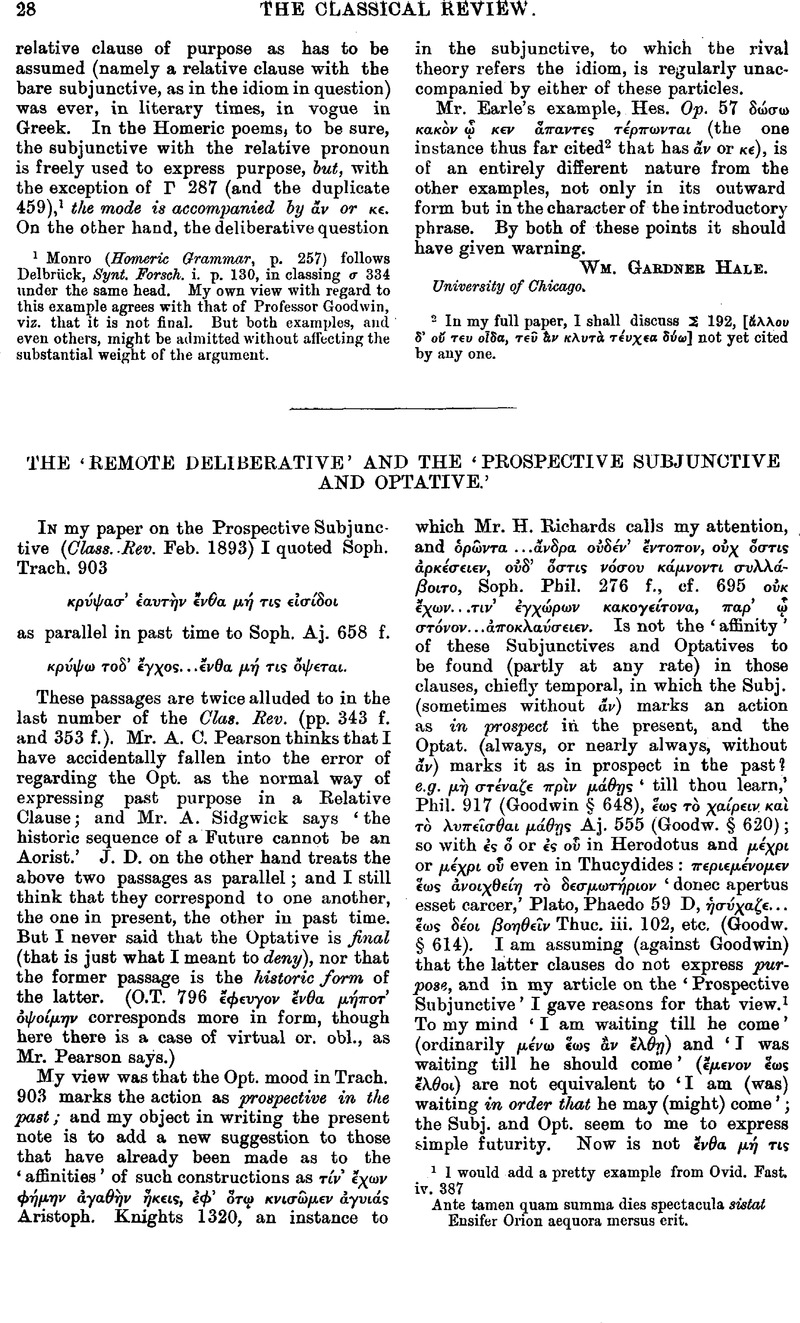No CrossRef data available.
Article contents
The ‘Remote Deliberative’ and the ‘Prospective Subjunctive and Optative.’
Published online by Cambridge University Press: 27 October 2009
Abstract

- Type
- Review Article
- Information
- Copyright
- Copyright © The Classical Association 1894
References
page 28 note 1 I would add a pretty example from Ovid. Fast, iv. 387
Ante tamen quam summa dies spectacula sistat Ensifer Orion aequora mersus erit.
page 29 note 1 Are we not in danger of exaggerating the differences between the various kinds of subordinate classes, under the influence of the classifications current in our grammars ?—Still I should be very glad if anyone would direct my attention to a really representative collection of subordinate clauses introduced by Relatives of Place.
page 29 note 2 e.g. cases like ![]() ; Eur. Ale. 52 (cf. 113—117), where the Optat. stands in present time. These seem to come from Direct Deliberative Questions like πο
; Eur. Ale. 52 (cf. 113—117), where the Optat. stands in present time. These seem to come from Direct Deliberative Questions like πο![]() τις φύγοι; quo fugiat ? (not quo fugeret ?)
τις φύγοι; quo fugiat ? (not quo fugeret ?)


